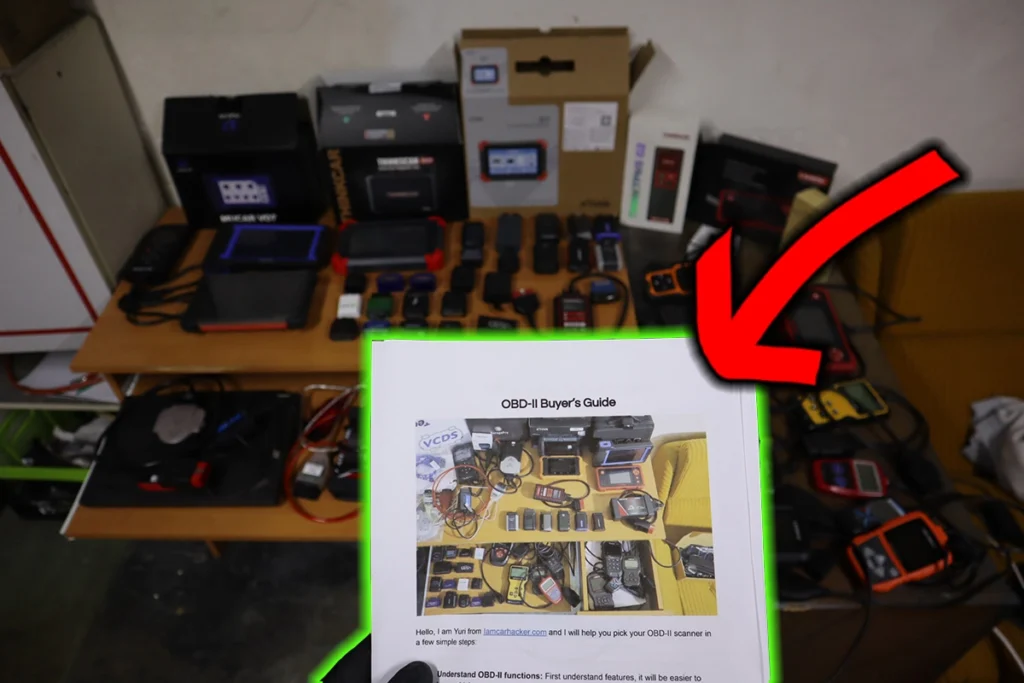The code P0351: Ignition Coil “A” Primary/Secondary Circuit Malfunction indicates a malfunction in the primary or secondary circuit of the ignition coil “A.” It’s a crucial issue as it directly impacts the ignition system of the vehicle, commonly caused by faults in the coil itself, its circuit, or related connections.
P0351 quick overview
| Meaning | P0351: Ignition Coil “A” Primary/Secondary Circuit Malfunction |
| Is it serious? | Yes, it can affect the vehicle’s ignition system and overall performance. |
| Possible causes | – Faulty ignition coil “A” – Open or short in the ignition coil “A” circuit – Poor electrical connection in ignition coil “A” circuit – Faulty engine control module (ECM) or powertrain control module (PCM) |
| How to diagnose? | Inspect Ignition Components: Check the ignition coil, spark plugs, and wiring for damage or wear. Check Wiring and Connectors: Look for damaged or loose connections, especially at the ignition coil and PCM. Test Coil Functionality: Use a multimeter to test the ignition coil’s resistance and voltage. Examine ECM/PCM: If other checks are inconclusive, evaluate the ECM or PCM for issues. Verify Circuit Integrity: Check the ignition circuit for open or short conditions. |
In simpler terms, the P0351 code means there’s a problem with the first ignition coil or its wiring in your car. This could make your car run rough or even cause it to stall, as the coil helps to ignite the fuel in the engine. The issue might be with the coil, the wires connected to it, or even the car’s computer system.
Free PDF: How to choose OBD2 scanner

I’ve made you a free PDF to choose the OBD2 scanner in 5 minutes.
✅ Which OBD2 scanner is best?
✅ Which type should you get (DIY, Pro, Hobby)
✅ What is the best scanner for the exact brand/feature (e.g best for BMW)
✅ How to get a Bi-Directional tool for as cheap as $40
✅ Discount coupons for scanners
PDF is 100% free and it is designed to help you pick a scanner in less than a few minutes! Not a boring 50-page guide.
Just tell me where to send it.
How to fix P0351 – learn from mechanics
I looked into P0351 service cases at iatn.com website where in the private forums the mechanics seek advice from other mechanics. I looked up a bunch of cases to help you decide how to fix your issue and see what would a real mechanic do to solve it.
Case #1: Toyota
Vehicle Information
- 2003 Toyota Camry SE 2.4L
Issue + Repair History
- Initial problem: Cylinder #1 misfire.
- Codes: P0301 (misfire cyl. #1), P0351 to P0354 (ignition coil circuit faults).
- Symptoms: Misfire only at cold start.
- Previous repairs: New spark plugs, visual inspection of coils and wiring.
- Codes cleared but returned after one week with P0351 and cylinder #1 misfire.
Suggestions to Fix Issue
- Check the brand of the spark plug and whether there’s a remote start or alarm connected to the ignition circuit or injectors.
- Try swapping coil pack #1 with another to see if the misfire shifts to a different cylinder.
- Inspect the IGF wire from the coil to the ECU, especially the terminal connections for looseness or poor connection.
Final Fix
- Replaced the injector in cylinder #1.
- Possible inadvertent fix of a bad connector during testing.
- No more codes and the customer is satisfied.
Case #2: Dodge
Vehicle Information
- 1996 Dodge B1500 3.9L
Issue + Repair History
- Problem: Intermittent stalling and hesitation, especially when slowing down.
- Code: P351 (ignition coil #1 primary circuit).
- Customer previously replaced ignition coil.
- Other replacements: computer, cam & crank sensors, fuel pump.
Suggestions to Fix Issue
- Check the electrical plug on the coil for a broken wire.
- Consider replacing the Automatic Shutdown (ASD) relay.
- Inspect the coil resistance and the coil #1 control wire.
- Use a lab scope to examine cam and crank sensors.
- Verify the wiring and consider a potential PCM (Powertrain Control Module) defect.
Final Fix
- Identified a bad ignition coil signal wire at the computer connector.
- Repaired using a splice computer connector harness from Dodge.
Case #3: Jeep
Vehicle Information
- 2001 Jeep Wrangler Sport 4.0L
Issue + Repair History
- Issues: Stalling, MIL Lamp on, intermittent poor performance.
- Codes experienced: P1391 (intermittent loss of cam or crank signal), P0351, P0352, P0353 (coil primary circuit issues), P0300 (random multiple misfire).
- Repairs attempted: Replaced crank sensor, cam sensor, oil pump drive, ASD relay, and coil pack.
Suggestions to Fix Issue
- Replace the ignition switch, as it can be a common issue with Chrysler vehicles.
- Check the flex plate for cracks or damage.
- Ensure cam trigger isn’t 180 degrees off and set cam timing with a scan tool.
- Consider the possibility of a failing PCM (Powertrain Control Module).
Final Fix
- Replaced the ignition switch.
- Adjusted cam sensor phasing, had to turn it significantly to read zero on the scan tool.
- After adjustments, the vehicle has not exhibited the issue again.
Case #4: Mitsubishi
Vehicle Information
- 1996 Mitsubishi Eclipse 2.0L
Issue + Repair History
- Symptoms: Surge, cuts out.
- Codes: P1390 (timing 1 tooth off), P0351 (coil primary circuit fault).
- Services performed: 60,000-mile service, replaced timing belt, fuel filter, spark plugs, air filter, coil with new pigtail, set of new wires.
- Other: New upstream O2 sensor noted by customer.
- Problem persisted after service, with the same codes reappearing.
Suggestions to Fix Issue
- Considering the possibility of a faulty cam or crank sensor despite the scanner readings.
Final Fix
- Mitsubishi dealer replaced the cam sensor, which resolved the issue.
Case #5: Mazda
Vehicle Information
- 1996 Mazda B2300 2.3L
Issue + Repair History
- Problem: MIL Lamp on.
- Code: P0351 (ignition coil “A” primary/secondary fault).
- Repairs: Replaced ignition coils, spark plugs; code cleared but reappeared after engine restart.
Suggestions to Fix Issue
- Check the condition of spark plugs and basics of the ignition system.
- Inspect wiring at the PCM (Powertrain Control Module) for broken wires or loose connections.
- Consider replacing the ignition module and ensuring proper use of heat sink compound.
- Verify the condition of all ignition system components, including plugs and wires.
Final Fix
- Replaced the ECU (Engine Control Unit) with a remanufactured unit.
- Diagnosed that one side of the ignition coil wasn’t getting a trigger signal from the ECU, affecting half of the integral coils.
- Tested and confirmed proper functioning of the coils and ECU signals.
How to diagnose P0351
I made you an overview of solving this DTC, based on all the advice that was suggested by certified mechanics to address this issue in previously mentioned service cases.
| Advice | Diagnostic Step Description |
|---|---|
| Check and Replace Ignition Components | Inspect and potentially replace spark plugs, ignition coils, and wires. Faulty components can trigger the P0351 code. |
| Inspect Wiring and Connectors | Examine all related wiring and connectors for damage, corrosion, or looseness, especially at the PCM and ignition coils. |
| Test ECU/PCM Signals | Verify that the ECU/PCM is sending correct signals to the ignition coils. Lack of proper signals can cause the code to appear. |
| Consider PCM/ECU Replacement | If diagnostics indicate, consider replacing or reprogramming the PCM/ECU, especially if the vehicle has issues with coil triggering. |
| Perform Basic Ignition System Checks | Conduct fundamental checks on the ignition system, including looking at the condition of spark plugs and the integrity of the ignition module. |
| Inspect for Mechanical Issues | In some cases, mechanical issues like broken wires or issues with cam or crank sensors can contribute to the fault code, so these should be inspected. |
Free PDF: How to choose OBD2 scanner

I’ve made you a free PDF to choose the OBD2 scanner in 5 minutes.
✅ Which OBD2 scanner is best?
✅ Which type should you get (DIY, Pro, Hobby)
✅ What is the best scanner for the exact brand/feature (e.g best for BMW)
✅ How to get a Bi-Directional tool for as cheap as $40
✅ Discount coupons for scanners
PDF is 100% free and it is designed to help you pick a scanner in less than a few minutes! Not a boring 50-page guide.
Just tell me where to send it.

Hi, I am Juraj “Yuri” Lukacko. I got frustrated by unhelpful and scammy mechanics, so I decided to learn everything about car diagnostics myself. I test dozens of new car diagnostic tools every month along with learning new strategies to fix and customize cars. About Juraj Lukacko (Yuri)